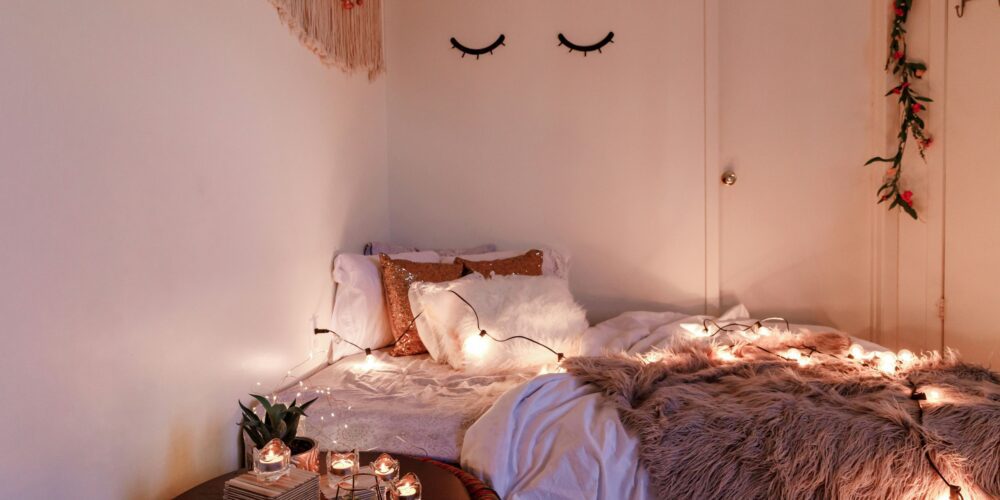In 1964, a 17-year-old American named Randy Gardner became the subject of a science experiment that would uncover the consequences of sleep deprivation. He was a science nerd and everywhere he lived, he went to the science fair.
To win the science fair in San Diego, he decided to break the world record for the longest period without sleep.
He recruited his two loyal friends to help him with this journey of pushing the boundaries of human endurance. Ultimately, he won the science fair and broke the world record with an astonishing 264 hours or 11 days without sleep.
Although he won the Guinness Book of World Records title for the longest period without sleep, the consequences of this experiment cast a shadow over his physical and mental well-being.
After a few days into the experiment, he started experiencing cognitive and behavioral changes that manifested as mood swings, difficulty concentrating, paranoia, hallucinations, and lapses in short-term memory. By the 11th day, he got confused about his age and even thought he was of a different race.
But the long-term effects were even more haunting. As he aged, he suffered from insomnia. He believed it was because of the experiment he did when he was a teenager.
Randy’s story is a warning about how important sleep is for our health and sanity. There are countless other examples where people have suffered severe health consequences because of lack of sleep.
In the fast-paced and hectic world we live in today, the focus is always on being more productive and successful in life. We are racing with time every day and the things that truly matter often take a back seat.
It should be our consistent effort to become a better version of ourselves every day and to become successful, but what we don’t realize is that taking care of our health and well-being is equally important.
Success isn’t just about money or fame. It’s also about taking care of our health and well-being. You can have all the money or fame in the world, but what good is worldly success if it is built upon a foundation of sleepless nights and compromised health? What’s the use of success if we’re not healthy enough to enjoy it?

Welcome to the third blog of our series on “Healthy Lifestyle Habits” where we will talk about the importance of a good night’s sleep and how it can impact the quality of life.
In this blog, we’ll explore all the aspects of sleep. We’ll learn about how to improve your sleep quality, talk about common sleep problems and how to solve them, and discuss the benefits of getting enough rest every night.
Let’s see how a good night’s sleep can make a world of difference in your life.
Table of Contents
How Important Is Sleep for a Good Quality of Life?
We humans and so many animals on this planet spend a third of our lives sleeping, yet we don’t fully understand why we sleep and what goes inside our bodies when we sleep. Let’s try to understand this first.
How Do We Fall Asleep?
Just like the iWatch on your wrist or the clock in your room or wall, our body also has its internal biological clock that is regulated by circadian rhythm. This body clock is located in the brain and it responds to light cues.
This circadian rhythm tells the body when to sleep and when to wake up. The light-sensitive cells in our eyes feed the signals to our brains that sync our body with the Earth’s 24-hour cycle of day and night.
When the sun sets and the world goes dark, the circadian rhythm tells the body that it’s time to sleep by increasing the levels of melatonin in the blood. When the body senses light, it brings melatonin back to its normal levels which is the cue to wake up.
That’s why our ancestors used to sleep and wake up with the sun. In most of rural India, people still follow this natural cycle. You will notice that the whole village is asleep around 7-8 PM and almost everyone wakes up at sunrise or even before that.
What Happens Inside Our Bodies When We Sleep?
Other than the vague image of the dreams we had, most of us have no idea what happens inside our bodies when we sleep. There are four stages of sleep that our bodies experience and on days when we have a good night’s sleep, we cycle these four stages around four or five times.
Each cycle of these four stages lasts for around 60-90 minutes and the number of cycles we go through each night depends on the number of hours we sleep.
The first two stages are light sleep and the last two stages are deep sleep. During the light sleep period, our bodies transition from being awake to falling asleep. Our heart rate and breathing slow down, feelings of fatigue start to kick in, and the body temperature lowers which is why we like to stick our feet out of the blanket.
Stage three is the first stage of deep sleep which is also known as delta sleep. This is the stage where our bodies produce the most amount of growth hormone that repairs old cells and produces new cells. The body repairs itself by servicing the bones and muscles.
Stage four is where we start dreaming. Our bodies produce hormones and chemicals that paralyze us temporarily so that we don’t act on those dreams. Otherwise, we would be running around or hitting people around us in our sleep. But our brain and eyes are very active in this stage. That’s why you would have seen people’s eyeballs, although the eyes are closed, rolling back and forth when they’re asleep.
The Modern World’s Impact on Sleep
As we just learned, the body’s neurochemistry sends a clear message that it’s time to sleep when it’s dark but unfortunately, in today’s world, darkness is very rare.
Most of us live in urban areas where there is light everywhere and we have to make intentional efforts to make our rooms dark by switching off all the lights and drawing the curtains so no outside light enters.
The moment you step outside your house, there is light everywhere and it is considered a sign of progress and development. While this is a very good thing for all of us as it ensures safety and convenience, light inside the room during bedtime is not a good thing.
Even after sunset, we expose ourselves to artificial light which has a serious impact on our sleep cycle. When we see a bright light at night, like that of a light bulb or light coming from the screens, our brain thinks that the sun is shining which confuses our body’s natural clock and disrupts our sleep cycle.
The entire process of melatonin production to kickstart sleep goes for a toss. We have a hard time sleeping and we wake up fatigued because of low-quality sleep.
What Happens to Your Health When You Don’t Sleep Enough?
The invention of the light bulb and the growth of technology have brought about a change where we have a 24-hour work schedule. We compare sleeping with being lazy and we think that it’s counterproductive, but we can’t be more wrong.
Let me share a scary statistic that I came across while researching for this blog. It comes from an experiment that is being performed on 1.6 billion people twice a year, every year, and it is known as daylight saving time.
In spring, when people lose about an hour of sleep, there is a 24 percent increase in heart attacks whereas in fall, when there’s an opportunity to sleep for an extra hour, there is a 21 percent dip. Shocking, isn’t it? Just one hour of extra sleep can make so much of a difference.
When we humans lived a hunter-and-gatherer lifestyle, there were days when the food was in abundance and there were days when there was no food at all. So our bodies evolved to store food as fat which can be used on such days when there is nothing to eat.
But the same didn’t happen with water and sleep. We can survive for days without food but we cannot survive without water and sleep. There are severe health consequences when our body is deprived of either of these two.
When you don’t sleep enough, it has a direct impact on your physical, mental, and overall well-being. Lack of sleep directly impacts your ability to concentrate and think clearly and you would have experienced this yourself on days when you slept for just a couple hours or not at all.
When we’re awake, our mind doesn’t stop thinking at all. It jumps from one thought to another. The decision-making part of the brain, the prefrontal cortex is always working when we’re awake. It only powers down when we’re asleep. When this part of the brain is well-rested, our ability to make sound decisions improves.
Other than these, insufficient sleep can also lead to chronic conditions such as diabetes, heart problems, cancer, depression, etc., and reduce life expectancy.
What Is Sleep Hygiene and What Are Healthy Sleeping Habits?
When we hear the word “Hygiene”, we instantly think about what we do in our daily routine such as taking a bath, changing into fresh and clean clothes, brushing our teeth, cleaning our space, etc.
While all these things are a part of the regular hygiene practice, sleep hygiene is about creating the right environment and habits to help you get the best sleep possible. It’s all about the things you do and the environment you create to set the stage for a good night’s sleep.
We’ve all had those nights where sleep just doesn’t come easily. It’s like tossing and turning, wondering what magic spell will finally let you drift off peacefully and wake up feeling refreshed. It turns out, you’re not alone. Almost all of us have experienced this at some point.
The good news is that improving your sleep hygiene doesn’t have to be complicated or expensive. It’s about making small but meaningful changes that add up to better sleep.
Building healthy sleeping habits is about creating a routine that makes it easier for you to fall asleep, stay asleep, and wake up feeling fresh and rejuvenated. It’s about cultivating specific behaviors and practices that support the body’s natural sleep cycle and improve sleep duration and quality.
How to Sleep Better at Night Naturally
Now that we’ve learned all about sleep and how it impacts your life, let’s get on with the habits that will help you get high-quality sleep so that you wake up feeling ready to take on the world.
1. Get Enough High-Quality Sleep
One of the key foundations of healthy sleep habits is making sure you get enough good-quality sleep every night. It’s like starting with your end goal in mind and then figuring out how to make it happen. The first important step is to focus on getting the right amount of sleep that works for you.
Experts generally recommend that adults should get between 7 to 9 hours of sleep each night for optimal health and well-being. While not everyone can manage 9 hours every night, it’s important to sleep for at least 7 hours to avoid potential health issues.
You can figure out your ideal sleep duration by paying attention to how you feel the next day after different amounts of sleep. If you still feel tired or sluggish, try adding an extra half-hour to an hour of sleep each night until you find the right balance. This might take a few days of observation to understand what works best for you.
Once you’ve figured out how many hours you need to sleep, you can work out your ideal bedtime. Start by deciding what time you need to wake up in the morning. Then, count back those number of hours to find the time you should be in bed.
2. Have A Consistent Sleep Schedule
Once you’ve figured out how many hours of sleep you need and the ideal bedtime and wake-up time that works for you, the next step is to stick to this schedule consistently. Go to bed and wake up at the same time every day, even on weekends. Partying or watching a movie till late is fine once in a while but don’t make it a habit and try to be consistent.
Being consistent in your sleep schedule is important for your body’s internal clock, the circadian rhythm so that you get a high-quality sleep. When you’re consistent, it becomes easier for your body to fall asleep and wake up refreshed.
3. Get The Morning Sunlight
As we discussed initially, our body’s circadian rhythm responds to light. So it is very important to expose ourselves to the natural sunlight every morning. It will help your body wake up and regulate the circadian rhythm which will eventually lead to improved sleep quality.
Exposure to morning sunlight signals to our brain that it’s time to wake up and start the day by suppressing melatonin production, the hormone that promotes sleep, and boosting alertness. This natural light exposure plays a significant role in synchronizing our circadian rhythm.
To incorporate morning sunlight into your routine, simply spend time outdoors shortly after waking up, ideally within the first hour of the morning. You can take a short walk outside, enjoy breakfast on your balcony or patio, or sit by a window that receives direct sunlight.
4. Have An Evening Self-Care Routine
Regardless of your profession or daily responsibilities, prioritizing an evening self-care routine is essential for winding down after a long day. This routine focuses on relaxation, nurturing your mind and body, and setting the stage for a restful night’s sleep.
This would include activities that will help you relax after a long and stressful day and these activities can be tailored to your own unique preferences. Our evening self-care routine involves going for a workout, taking a bath right after, having a healthy dinner, and watching an episode of a TV series.
Although we should avoid screens before going to bed, it is the only time we have. You can listen to some relaxing music or read a page or two of a good book.
Having a self-care routine is not something you do once or twice, it is something you should do every day to reap its benefits. If you bring your work home or keep thinking about the events of the day, your mind and body will never be able to relax. That’s why it’s very important to save those thoughts and work for tomorrow, and wind down.
We have written an entire blog series on self-care where the intro blog explains self-care in detail, and the subsequent blogs are on mental self-care, physical self-care, and emotional self-care. We encourage you to give them a read if you’re interested in knowing about what is self-care and the different activities and practices that come under the different types of self-care.
5. Create a Positive Sleep Environment
Your sleep environment plays a significant role in your ability to fall asleep quickly and stay asleep throughout the night. Here are some pointers to create a conducive sleep environment:
- Cooler temperatures are generally favorable for sleep so make sure your room is cool and dark.
- Either use an eye mask or have blackout curtains to block any light coming from outside.
- Your bed should be comfortable so make sure to invest in a quality mattress and pillows.
- There shouldn’t be any noise around you while you sleep. If there is, use earplugs.
- Avoid screens as much as you can before you go to bed. The light from the screens will suppress melatonin production and disrupt your sleep-wake cycle.
- Keep your space tidy and clutter-free.
Wrapping Up – Healthy Sleep Habits
Sleeping is not just a period of rest, but a fundamental pillar of overall health and vitality for almost all living organisms. It is something that our bodies can’t function without and over tens of thousands of years of evolution, our bodies have not been able to come up with a mechanism to substitute sleep.
Throughout this blog, we’ve learned about the importance of sleep and how insufficient sleep can wreak havoc on our minds and bodies. We’ve explored what happens inside our body when we sleep and what can happen to us if we don’t sleep enough.
In the end, we can safely conclude that getting good quality and enough sleep every night is not a luxury but a necessity for a fulfilling and balanced life in this fast-paced world. Proper sleep leads to improved productivity, good mood, and better and sharper cognitive abilities.
We hope that this blog about how sleep impacts your quality of life serves as a reminder of the invaluable role that sleep plays in our daily lives.
By nurturing good sleep hygiene and embracing the healthy sleep habits we discussed, we pave the way for a brighter, more energized, and fulfilling existence. Let’s continue to prioritize sleep for a healthier tomorrow. Namaste!







Leave a Reply